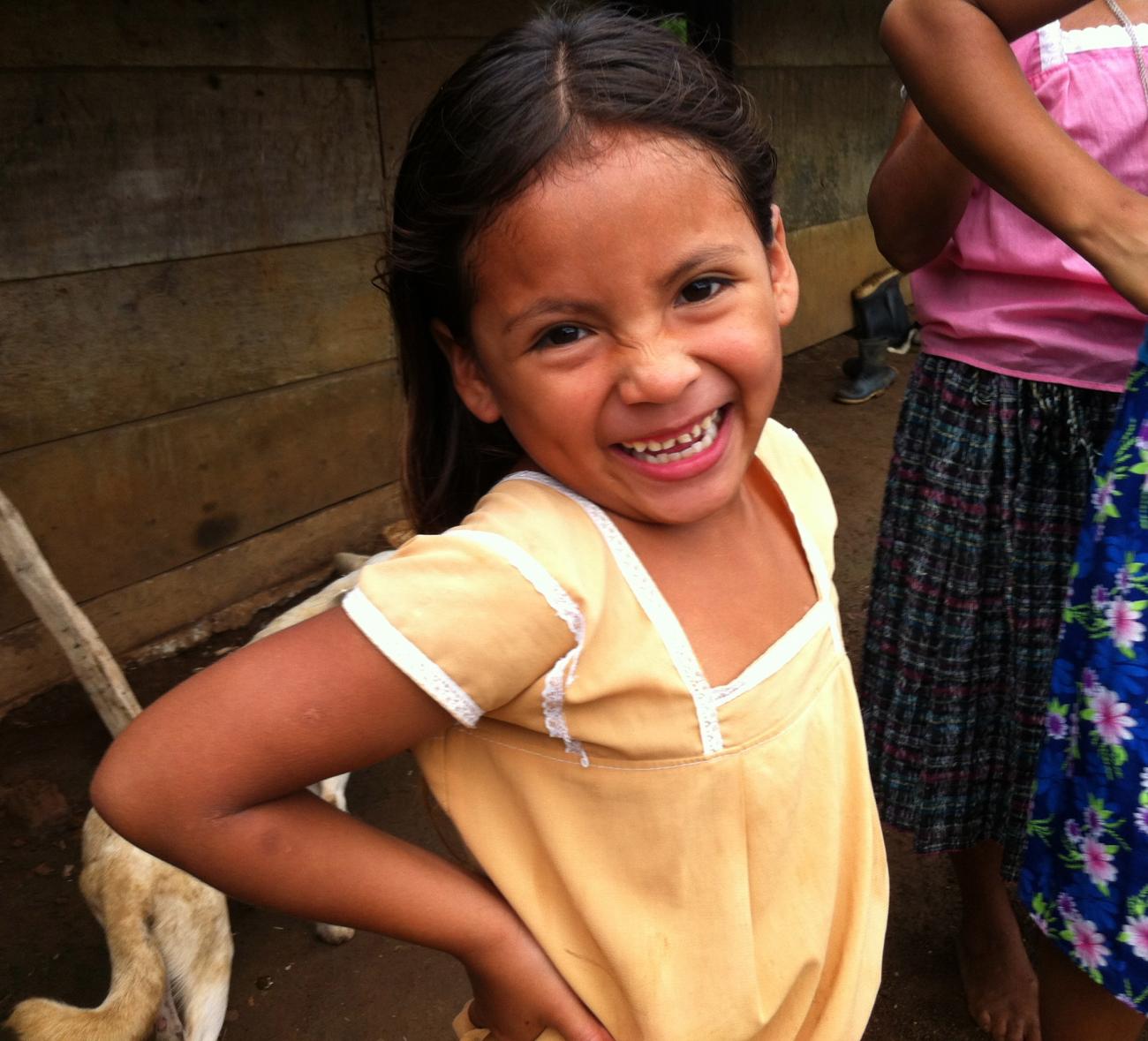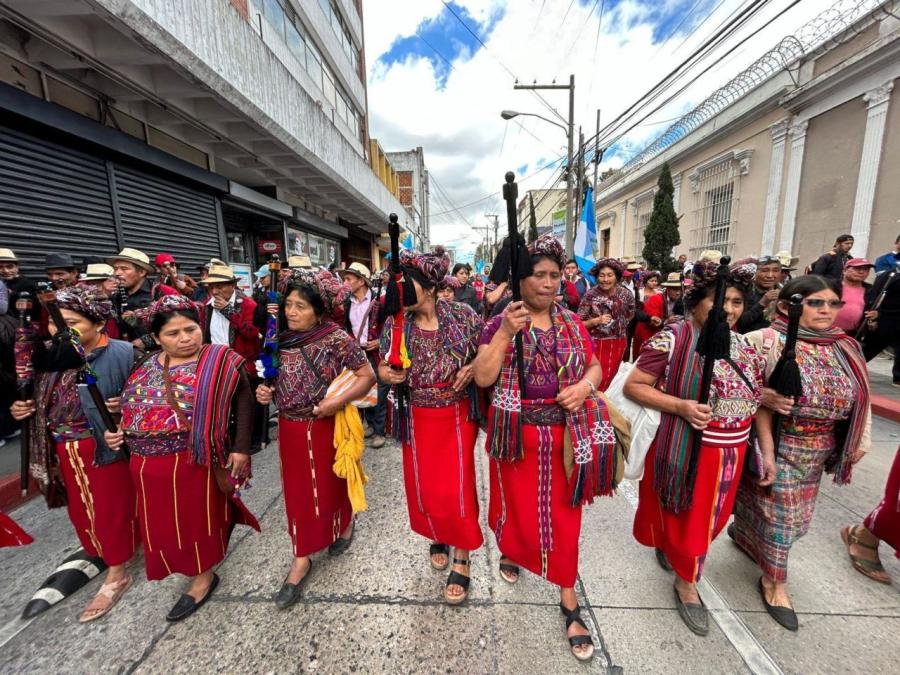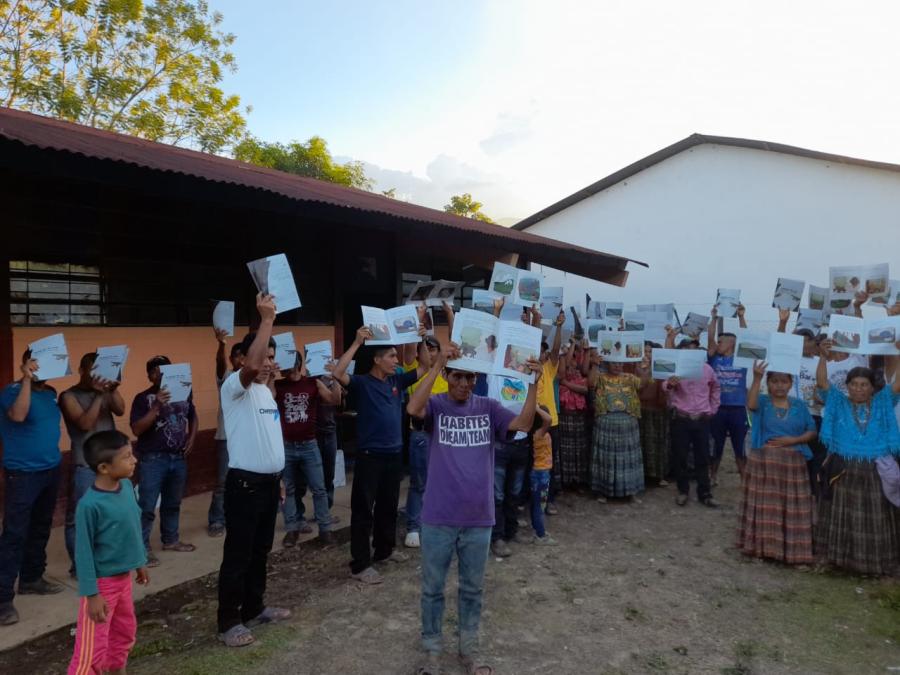
During the last week of August 2013, Cultural Survival's team traveled to Belize for the implementation of one of our newest community radio projects. This new project is aimed at improving integration for Indigenous communities in Central America through community radio. As a result of this project, we are expanding our Guatemalan community radio network to include a radio station in Belize and a radio station in El Salvador. We are holding exchanges, workshops and a forum for youth from all of the radios involved. The events are aimed at getting youth excited about using community radio as a tool for integration and development, and teaching them how to do so.
[[{"fid":"61948","view_mode":"media_original","type":"media","attributes":{"height":1936,"width":2308,"style":"width: 400px; height: 336px; ","class":"media-element file-media-original"}}]]
Our team meeting in the Tumul K'in Centre of Learning office. From left to right: Sobrevivencia Cultural project coordinator Angelica Rao, Tumul K'in project coordinator Aurelio Sho, FLACSO Costa Rica (Organization that is funding the project) Project Manager Ana Maria Vasquez, Tumul K'in Director Esther Sho, and Radiio Volunteer at Ak'Kutan Radio Sarah Chun.
When we arrived in Belize, Aurelio, the project coordinator from our counterpart organization picked us up in his truck, and we travelled for about an hour to the office of Tumul K’in Centre of Learning for a meeting. Then, we headed off to visit San Benito Poite, one of the rural Indigenous communities that will be benefitting from this project. Aurelio had warned us that the roads in the Toledo District of Belize flood very easily during the rainy season, but we headed off regardless. After about an hour driving through the rainforest, the road suddenly disappeared and was replaced by a rushing river. From there we continued on foot to reach the community. We walked knee deep in water, mucking through thick, sticky mud in order to arrive at the community.
[[{"fid":"61949","view_mode":"media_original","type":"media","attributes":{"height":1936,"width":2277,"style":"width: 400px; height: 340px; ","class":"media-element file-media-original"}}]]
The road to the San Benito Poite Community at the moment when the road turned to river. (The waterfall is a little bridge)
While walking through these swampy waters, the extent of the exclusion that many of these communities experience became clear. It is a common occurrence that these communities cannot be reached by vehicle. As well, the San Benito Poite community, like many others in the Toledo district, has no electricity. However, the majority of families have a battery-powered radio in their houses, where they can listen to their community radio station. When disasters occur, they can call the radio and inform the volunteers that they need help. This is one of the ways that community radio can help with extreme exclusion.
As part of our project, Tumul K’in team is currently conducting surveys in these communities to ask them directly what they need and want from their community radio station. In this way, the communities can make decisions about how they want their community radio station to serve their communities.
[[{"fid":"61951","view_mode":"media_original","type":"media","attributes":{"height":1936,"width":2224,"style":"width: 400px; height: 348px; ","class":"media-element file-media-original"}}]]
A family in front of their home in the San Benito Poite Community of Toledo, Belize.
Community radio is an indispensable tool for minimizing exclusion. Without the help of Ak’Kutan Radio in Blue Creek, Belize, there would be no way of communicating to the outside world when communities like San Benito Poite experience flooding or other problems. Through this project, we will be directly involving youth from communities such as these in the radio, enabling them to represent their communities, helping to better integrate them with the greater Belizean and Central American communities.


